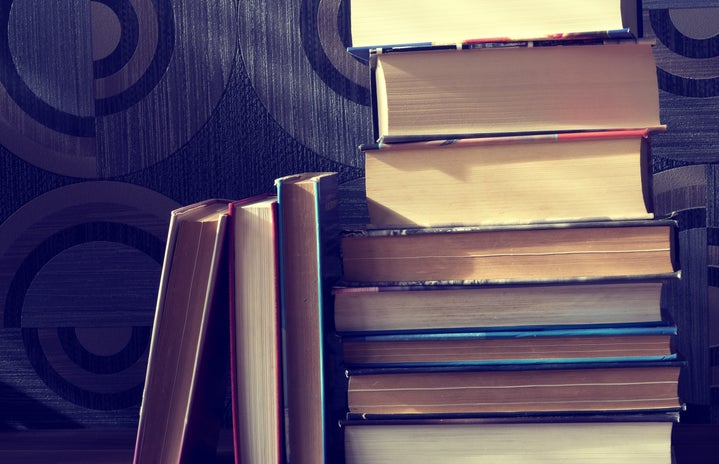In primary and secondary school, reading material was required for English classes, and there was never a really satisfactory explanation given for what was the benefit of reading. Sure, it’s to keep your brain active, to make you think, but those seem like cop-out answers. Those half-explanations are the reason most people don’t read after leaving high school. It’s definitely harder to read in one’s free time once the world crashes in with responsibilities. When I say reading, I mean stories, both fiction and non-fiction, prose and play and poetry. There are arguments to be made for various modes of printed word, from magazine to news article, but I want to focus on advocating for media-consumption-that-might-be-found-at-a-library kind of book. From an English major and literature lover, here are some more legitimate reasons why to strive to read throughout your life.
Reading gives a greater capacity for empathy.
It has been proven that reading books increases empathy–one’s sensitivity in responding to various human issues. It’s easy to get wrapped up in our own lives, to live within the bubble of our current situations. College especially is it’s own bubble, which is its own self-sustainable micro-environment of academics, social interactions, and other more mundane aspects of life (i.e. housing, meal catering, etc.). To become a responsible global citizen, it’s important to remain aware of international events and current human rights issues, to break outside that proverbial bubble. Stories are a digestible way to access these various world-wide issues.
Media not only touches on the larger political, humanitarian, and/or cultural events, but provides specific, grounded stories to give examples of how these larger problems may affect citizens. Additionally, there is a difference between being aware of certain life experiences and living through them oneself. Some experiences can’t be lived through, such as belonging to a different racial group; growing up with a different background; being a part of a different culture, with its associated social connotations, government, religious background; etc. Having an awareness of a diversity of alternative perspectives, even when consumed through media rather than personally lived, provides a way to understand people very different from ourselves. When encountering these type of people in our own lives (i.e. direct encounter, through other people, or seen in the news), we’re able to have a more balanced, mediated perspective of their characters, rather than jumping to conclusions based on stereotypes.
Passage from an Introduction to an Ursula K. Le Guin novel, courtesy of a friend
Exposure to a variety of human experiences and perspectives, from throughout history.
Because literature is an artistic representation of human experience based off reality, it’s often able to attain a quality of seeming “more real than reality itself.” Literature and books in general describe and analyze human behavior and human systems, so they are able to come to conclusions that can generalize about life. Books expand beyond an understanding of human experience and the various systems we operate in than just via living in those. I find that the more I read, from a diversity of genres, authors, and literary categories, the more connections I’m able to piece together to get a complete picture of historical time periods and cultures, such as WWII and holocaust literature, the American antebellum slave south, the roaring ‘20s followed by the Great Depression and Dustbowl, 1950s-70s Latin America political upheaval, conservative societies structured around religion (India and Egypt, ancient Asia, Catholicism), etc. I’ve also sought out books on specific topics, from drug usage to mental illness to abuse, feminism to queer or LGBTQ+ theory to racism.
This effect of social awareness is especially evident in satires, such as comedy, and psychological thrillers. These genres criticize various aspects of “normal” society, and so point out how our assumptions and habits on a daily basis are in fact just that – assumptions. Questioning these structures of society and reality are important to being more critical about life and what we want to get out of it, how we want to contribute. I generally term this the “awakening” function of literature and media, to prevent us from continuing to go through the motions of life, half-asleep.
Author wallpaper, Elliott Bay Book Company, Seattle, WA
Enables critical thinking about the various systems affecting us.
I think one of the most powerful functions of media and literature is to draw attention to the various systems structuring our reality. By this, I mean systems of control embedded within society and governmental policies. Stories are contextualized within these cultural structures and often comment on various issues. For example, traditional sexism was a social given for a long time, until people recognized the patriarchal system at work and actively questioned it. Media and literary stories, because they are based around conflicts, inherently highlight social inequalities, problematic binary oppositions, and oppressive systems at work. Just like the bubble effect I mentioned above, it’s difficult to identify the structures impacting us unless we get an alternative perspective.
Chapter from Mary Ruefle’s Madness, Rack and Honey
Engage with a story in a way you might not with visual media.
Visual media such as movies and tv shows, including documentary films and series, enable a passive watching experience that is impossible when engaging with a text. Texts require more direct engagement with the material. The story doesn’t move ahead without you – it only moves as fast as you process it, so it discourages a certain amount of multi-tasking.
While some people might engage with visual media in the same serious way as texts, I’m speaking of the general trend towards half-watching tv and movies, treating them as entertainment. However, entertainment can become powerful as well when it fosters communication.
Images contributed by the writer


